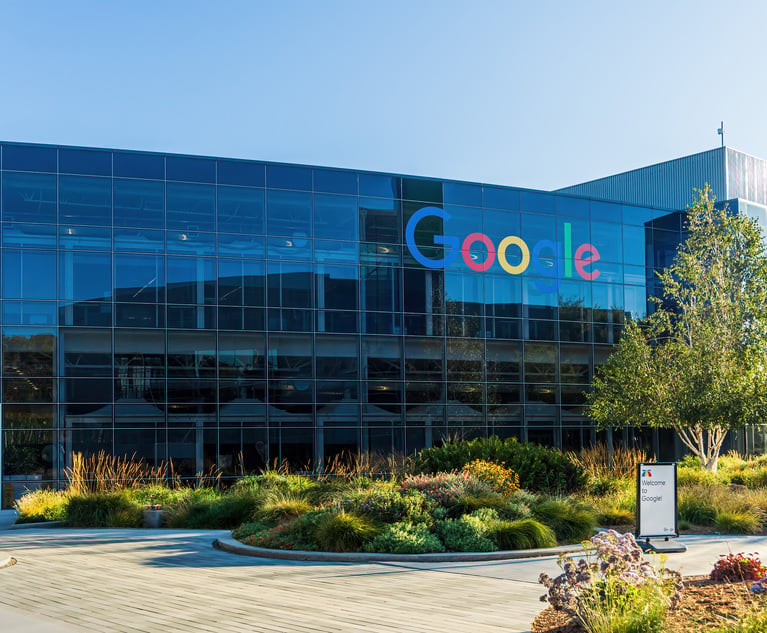California Federal Courts Are Urged to Open Wider Door to Out-of-State Lawyers
Eleven groups press the court to drop a requirement that lawyers who practice in the district be admitted to the State Bar of California.
February 06, 2018 at 01:40 PM
4 minute read
 The Phillip Burton federal building in San Francisco. Credit: Jason Doiy/ The Recorder
The Phillip Burton federal building in San Francisco. Credit: Jason Doiy/ The Recorder
A coalition of interest groups on Tuesday asked the federal courts in California to open their doors more freely to out-of-state lawyers.
In a petition filed in the U.S. District Court for the Northern District of California, 11 groups, including the American Civil Liberties Union and the Pacific Legal Foundation, asked the court to drop a requirement that lawyers who practice in the district be admitted to the State Bar of California.
The California bar requirement makes little sense practically, the petitioners argue, because the court operates under federal, not state, rules and the majority of cases deal with federal law. Forcing out-of-state lawyers to take California's notoriously tough bar exam and then continue paying $410 in annual dues to maintain active status is time-consuming and costly, the petition says.
“These burdens are wholly out of proportion to any possible benefit that might be realized for clients and the court from imposing such a requirement,” the groups wrote in their petition.
Attorneys for the petitioners are Alan Morrison, associate dean for public interest and public service at George Washington University Law School, and Mark Chavez, founding partner of Mill Valley plaintiffs firm Chavez & Gertler.
The local rules of all four district courts in California, as well as those in Nevada and Hawaii, require admission to their home state's bar. Out-of-state attorneys can appear pro hac vice, but the required $310 payment for each attorney in each case—including those appearing on behalf of an amicus curiae or individual class member—is burdensome, the petitioners argue.
The issue of which lawyers should be allowed to practice in specific federal courts is one that has been argued for years—and not usually successfully by those seeking broader appearance rules. Complicating matters is that California's state bar does not offer reciprocity, or admission by motion, to out-of-state lawyers.
Morrison said in an email that the interest groups are starting with the filing in the Northern District “because it's more manageable, but we are sending copies to all the districts in the Ninth Circuit, and we hope to make this change nationally over time.”
 Allison Zieve of Public Citizen Litigation Group. (May 17, 2010) Photo by Diego M. Radzinschi/ ALM
Allison Zieve of Public Citizen Litigation Group. (May 17, 2010) Photo by Diego M. Radzinschi/ ALMThe petitioners are asking the Northern District to start a formal rulemaking process that would solicit comments on a new policy allowing any lawyer in good standing with his or her state bar to practice in the court. If the court denies the petition, the groups say they may ask the Judicial Council for the U.S. Court of Appeals for the Ninth Circuit to consider their request.
The California state bar and a representative from the Ninth Circuit did not immediately comment on the petition filed Tuesday.
A spokesperson for Chief Judge Phyllis Hamilton of the Northern District said in a statement Tuesday afternoon: ”The Court appreciates receiving input from the public on its local rules and, consistent with the Federal Rules of Civil Procedure, routinely gathers and considers comments from the public on every local rule change. Per the Court's usual practice, the petition prepared by Professor Alan B. Morrison and Attorney Mark A. Chavez will be referred to the Northern District's Rules Committee who will review it in due course, along with other proposed amendments to the local rules.”
“We hope that the Northern District will grant the petition and that its decision will serve as a model for federal courts with similar requirements across the country,” said Allison Zieve, director of the Public Citizen Litigation Group, which also signed the petition.
The other petitioners are the Association of Corporate Counsel, the Cato Institute, the Center for Constitutional Litigation, the Competitive Enterprise Institute's Center for Class Action Fairness, Consumers for a Responsive Legal System, Earthjustice, the Natural Resources Defense Council and Public Justice.
This report was updated with additional information about the petition.
This content has been archived. It is available through our partners, LexisNexis® and Bloomberg Law.
To view this content, please continue to their sites.
Not a Lexis Subscriber?
Subscribe Now
Not a Bloomberg Law Subscriber?
Subscribe Now
NOT FOR REPRINT
© 2024 ALM Global, LLC, All Rights Reserved. Request academic re-use from www.copyright.com. All other uses, submit a request to [email protected]. For more information visit Asset & Logo Licensing.
You Might Like
View All
Justices Seek Solicitor General's Views on Music Industry's Copyright Case Against ISP

Judge to Hear Arguments on Whether Google's Advertising Tech Constitutes a Monopoly
3 minute read
SEC Targets Rising Crypto Financier in $115 Million Securities Fraud
3 minute read
Trending Stories
Who Got The Work
Michael G. Bongiorno, Andrew Scott Dulberg and Elizabeth E. Driscoll from Wilmer Cutler Pickering Hale and Dorr have stepped in to represent Symbotic Inc., an A.I.-enabled technology platform that focuses on increasing supply chain efficiency, and other defendants in a pending shareholder derivative lawsuit. The case, filed Oct. 2 in Massachusetts District Court by the Brown Law Firm on behalf of Stephen Austen, accuses certain officers and directors of misleading investors in regard to Symbotic's potential for margin growth by failing to disclose that the company was not equipped to timely deploy its systems or manage expenses through project delays. The case, assigned to U.S. District Judge Nathaniel M. Gorton, is 1:24-cv-12522, Austen v. Cohen et al.
Who Got The Work
Edmund Polubinski and Marie Killmond of Davis Polk & Wardwell have entered appearances for data platform software development company MongoDB and other defendants in a pending shareholder derivative lawsuit. The action, filed Oct. 7 in New York Southern District Court by the Brown Law Firm, accuses the company's directors and/or officers of falsely expressing confidence in the company’s restructuring of its sales incentive plan and downplaying the severity of decreases in its upfront commitments. The case is 1:24-cv-07594, Roy v. Ittycheria et al.
Who Got The Work
Amy O. Bruchs and Kurt F. Ellison of Michael Best & Friedrich have entered appearances for Epic Systems Corp. in a pending employment discrimination lawsuit. The suit was filed Sept. 7 in Wisconsin Western District Court by Levine Eisberner LLC and Siri & Glimstad on behalf of a project manager who claims that he was wrongfully terminated after applying for a religious exemption to the defendant's COVID-19 vaccine mandate. The case, assigned to U.S. Magistrate Judge Anita Marie Boor, is 3:24-cv-00630, Secker, Nathan v. Epic Systems Corporation.
Who Got The Work
David X. Sullivan, Thomas J. Finn and Gregory A. Hall from McCarter & English have entered appearances for Sunrun Installation Services in a pending civil rights lawsuit. The complaint was filed Sept. 4 in Connecticut District Court by attorney Robert M. Berke on behalf of former employee George Edward Steins, who was arrested and charged with employing an unregistered home improvement salesperson. The complaint alleges that had Sunrun informed the Connecticut Department of Consumer Protection that the plaintiff's employment had ended in 2017 and that he no longer held Sunrun's home improvement contractor license, he would not have been hit with charges, which were dismissed in May 2024. The case, assigned to U.S. District Judge Jeffrey A. Meyer, is 3:24-cv-01423, Steins v. Sunrun, Inc. et al.
Who Got The Work
Greenberg Traurig shareholder Joshua L. Raskin has entered an appearance for boohoo.com UK Ltd. in a pending patent infringement lawsuit. The suit, filed Sept. 3 in Texas Eastern District Court by Rozier Hardt McDonough on behalf of Alto Dynamics, asserts five patents related to an online shopping platform. The case, assigned to U.S. District Judge Rodney Gilstrap, is 2:24-cv-00719, Alto Dynamics, LLC v. boohoo.com UK Limited.
Featured Firms
Law Offices of Gary Martin Hays & Associates, P.C.
(470) 294-1674
Law Offices of Mark E. Salomone
(857) 444-6468
Smith & Hassler
(713) 739-1250






